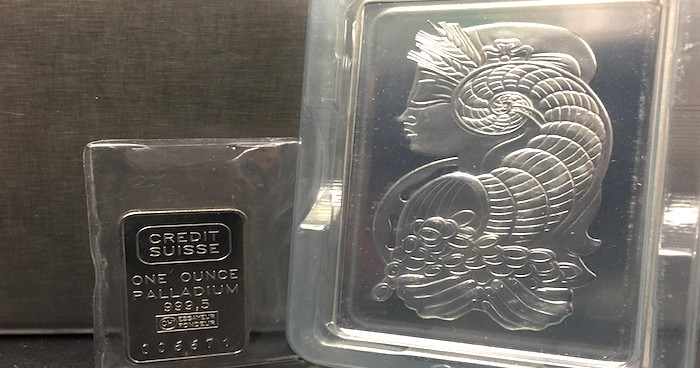Palladium this year became by far the most expensive industrial metal: on February 19, the price of LSE reached a record level of $ 2,841 per ounce. Since the beginning of 2020, it has risen in price by 45%, in 2019 - by 54%, over the past three years - fourfold. For comparison, gold costs $ 1.6 thousand per ounce, platinum - $ 1 thousand. Some analysts, trying to explain what is happening, called the situation hysterical. The industry association London Platinum and Palladium Market (LPPM) has warned of "exceptionally turbulent trading conditions." The organization’s head John Metcalf, believes that the situation is now worse than in the late 1990s, when metal exports were limited as a result of the collapse of the USSR.
The main consumer of palladium is the car industry. Last year, it accounted for almost 84% of supplies. Palladium is used as a catalyst in gasoline engines to reduce emissions, and platinum is used in diesel engines for the same purpose. The turning point for palladium occurred in the fall of 2015, at the peak of the so-called Dieselgate: it turned out that more than 11 million diesel cars of Volkswagen concern were equipped with software that underestimating the amount of harmful gases during emission tests. One of the consequences of the scandal was a reduction in government subsidies for diesel cars. As a result, demand for platinum declined, while for palladium it increased sharply.
Although the price of palladium has increased several times since then, industry companies and analysts believe that this will have little effect on automakers' policies. It is theoretically possible to partially replace palladium in gasoline engines with platinum, but for automakers this means additional costs for tests and certification.
ABN Amro suggests that demand for palladium could fall only if there is a rapid increase in the number of electric vehicles that would begin to displace gasoline-powered cars. Nevertheless, few people believe in the speedy implementation of such a scenario, since electric cars are noticeably more expensive, and the demand for them is low in the absence of state subsidies. In addition, owners or those who want to buy such a car are faced with the problem of having charging stations, and in cold climates the use of electric vehicles raises questions as a whole.
As a result, in the next few years, the situation on the palladium market is likely to remain extremely favorable for metal producers: against the background of stable and even growing demand, the prospects for increasing supply look rather limited.
source: reuters.com, bloomberg.com
The main consumer of palladium is the car industry. Last year, it accounted for almost 84% of supplies. Palladium is used as a catalyst in gasoline engines to reduce emissions, and platinum is used in diesel engines for the same purpose. The turning point for palladium occurred in the fall of 2015, at the peak of the so-called Dieselgate: it turned out that more than 11 million diesel cars of Volkswagen concern were equipped with software that underestimating the amount of harmful gases during emission tests. One of the consequences of the scandal was a reduction in government subsidies for diesel cars. As a result, demand for platinum declined, while for palladium it increased sharply.
Although the price of palladium has increased several times since then, industry companies and analysts believe that this will have little effect on automakers' policies. It is theoretically possible to partially replace palladium in gasoline engines with platinum, but for automakers this means additional costs for tests and certification.
ABN Amro suggests that demand for palladium could fall only if there is a rapid increase in the number of electric vehicles that would begin to displace gasoline-powered cars. Nevertheless, few people believe in the speedy implementation of such a scenario, since electric cars are noticeably more expensive, and the demand for them is low in the absence of state subsidies. In addition, owners or those who want to buy such a car are faced with the problem of having charging stations, and in cold climates the use of electric vehicles raises questions as a whole.
As a result, in the next few years, the situation on the palladium market is likely to remain extremely favorable for metal producers: against the background of stable and even growing demand, the prospects for increasing supply look rather limited.
source: reuters.com, bloomberg.com



















